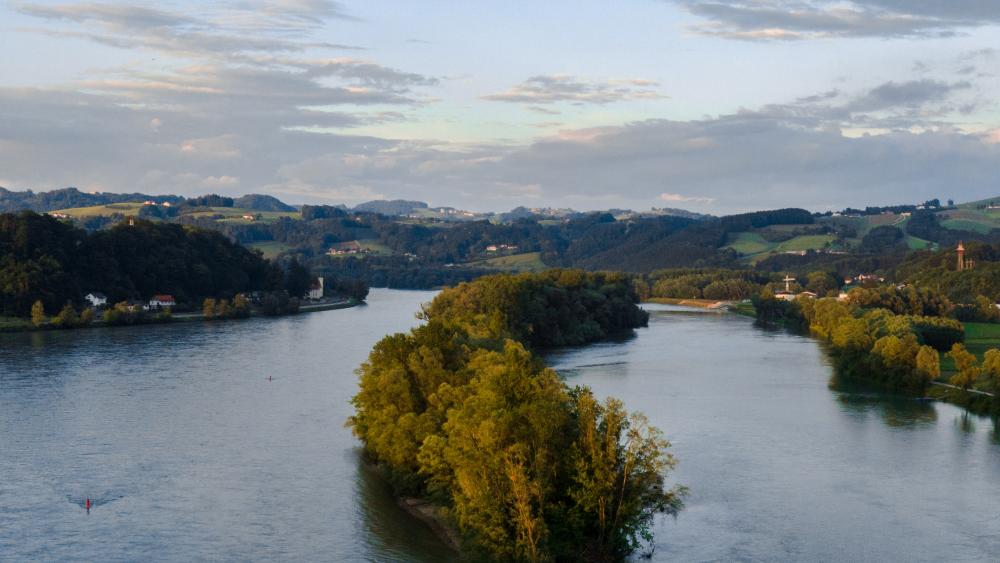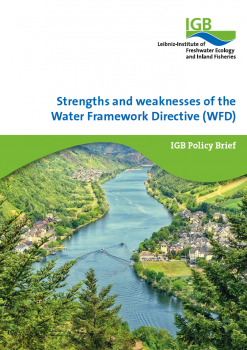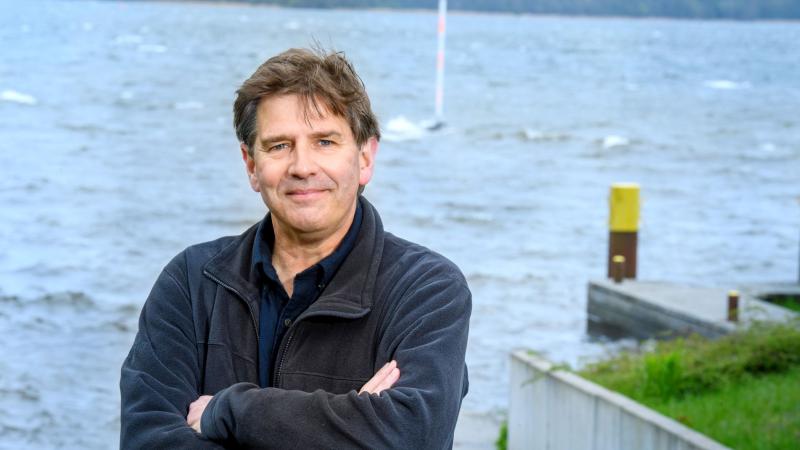
Using the example of the multi-state Danube River, researchers assessed different ecosystem services for the current status quo of the river and its floodplains as well as for two different planning states. | Photo by Joachim Pressl on Unsplash
Up to now, it is primarily the good ecological status of a water body, as required by the WFD, that proves the success of a measure. But there are positive changes that go far beyond the purely ecological, chemical and hydromorphological status assessment: so-called ecosystem services, i.e. the contributions of ecosystem structures and functions to the wellbeing of people and society. These include, for example, a higher cooling effect, improved high and low flow regulation and habitat diversity, or yields for fisheries and an increase in attractiveness for people in the surrounding area.
Researchers and experts recommend supplementing the ecological status classification according to the WFD with such a functional assessment of ecosystem services. And they emphasise an additional advantage: while ecological improvement of measures often only become measurable years later or sometimes fail to appear altogether – for example, if the water bodies are heavily used and shaped by humans – improved ecosystem services can be recognised earlier. In the "one out – all out" principle of the WFD so far, individual improvements often fall victim to the presentation of the overall status; they are not recognisable. Ecosystem services could help to present positive developments even if the WFD objectives have not (yet) been achieved.
Impulses for practice: better planning procedures thanks to ecosystem services
Ecosystem services can also be used to communicate the positive effects of restoration and conservation measures to policy-makers and society. “Visualising the added value of restored water bodies for nature and society by means of concrete ecosystem service values can enhance the overall acceptance of a measure”, explained IGB researcher Dr. Simone Podschun. This is particularly useful if conflicts of use arise in the context of planned measures. If there is already consensus on the societal goals early in the planning process, potential conflicts can be identified and addressed at an early stage.
Researchers and practice partners have shown how this works using the Danube River as an example: There, they determined 13 different ecosystem services for the current status quo of the river and its floodplains as well as for two different planning states. They were able to predict the effects of the planned water management measures. Although both planning states were expected to have the same success in flood regulation, there were major differences in other ecosystem services. For this purpose, the experts used the RESI index developed at IGB, which provides recommendations for comprehensive evaluation and visualisations for practical use.
Nevertheless, the concept of ecosystem services is hardly used in water management. In order to change this, a guideline is to be developed, among other things, in the future DWA working group "Success evaluation of watercourse maintenance and restoration measures based on ecosystem services", which will support a uniform evaluation basis for ecosystem services of water bodies.
What can be learned from terrestrial systems
While the concept of ecosystem services is relatively under-researched for inland waters, it has been applied to terrestrial areas for some time. "The importance of water bodies for the provision of ecosystem services is highlighted in many studies, but a targeted analysis of aquatic ecosystems with all their specific features has been very rare," said Podschun. If one wants to consider and evaluate aquatic and terrestrial ecosystem services in an integrated way, one should therefore not disregard the special features of freshwater ecosystems. For a second study, she teamed up with international colleagues to identify characteristics that are unique to freshwater ecosystems. These include the strong spatial interconnectedness, even across national borders, the directional flow and the vertical connections to groundwater.
"Our aim is to close knowledge gaps in freshwater ecosystems as quickly as possible and at the same time show how approaches from aquatic research can advance ecosystem services research," said Podschun. Ecosystem service research provides approaches for the observation of complex, social-ecological systems – but also for the improvement of science communication and governance (e.g. nature-based solutions). Conversely, freshwater research offers approaches for better spatial integration both in terms of complex interrelationships in the landscape and in relation to the concerns of upstream and downstream user groups. "At the same time, with the Water Framework Directive we have a reporting system that is so far unique at the EU level and offers a window of opportunity for integrating the ecosystem services approach into practice," the researcher pointed out.









